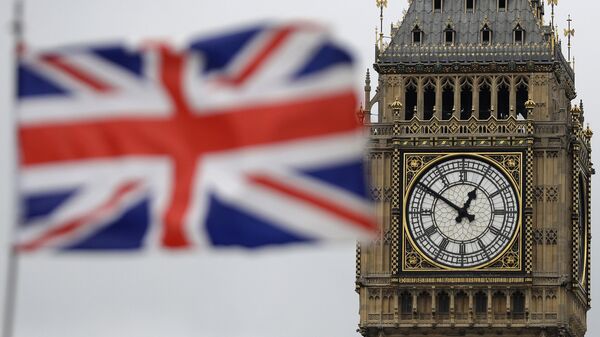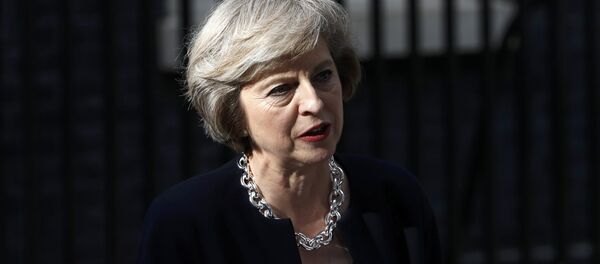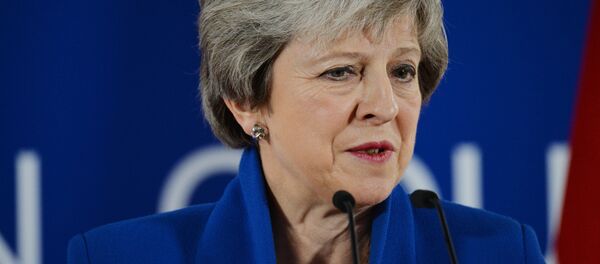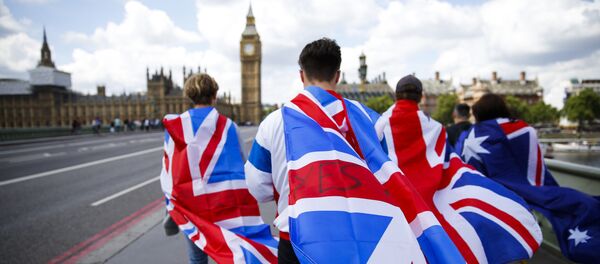Parliament Takes Back Control of Brexit
The UK lawmakers will vote on the deal on Tuesday, so Prime Minister Theresa May has only a few days left to sway the doubters or convert the staunch opposition.
The start to the debates, a week before the fateful vote, was far from auspicious: the parliament voted to have more influence on what happens next if the Commons votes down the deal on Tuesday.
The legal advice of the attorney general on the backstop solution for the Irish border, published Wednesday, appeared to confirm some of the concerns voiced around the deal.
Legal Advice on Irish Border
The solution proposed in the current deal would keep the United Kingdom in a customs arrangement with the European Union to avoid a hard border between Northern Ireland and the Republic of Ireland. At the same time, Northern Ireland would remain subject to some of the EU single market rules, unless another solution was found by the end of the transition period in December 2020.
READ MORE: 'Worst Possible Outcome': Brexit Deal Would Make EU Rule Taker — UK Politician
The backstop is only supposed to take effect if no better agreement to avoid hard Irish border has been reached.
Nigel Dodds, the deputy leader of the Democratic Unionist Party (DUP), which is backing May's Conservative Party in the parliament, has described the legal advice as "devastating." The DUP was unhappy with the deal to begin with, which does not bode well for the upcoming vote. DUP support could be crucial for May, whose party is short of an absolute majority in a 650-seat House of Commons. Without the 10 DUP lawmakers, 315 Conservatives could be left hanging by a thread.
Farage Leaves UKIP
While the UK government was fighting for its deal, the UK Independence Party (UKIP) that played an important role in the run-up to the 2016 Brexit referendum said goodbye to one of its most prominent leaders, Nigel Farage.
Farage said he was leaving the UKIP "with a heavy heart," but added that it was "not the Brexit party our nation so badly needs."
"There is a huge space for a Brexit party in British politics, but it won’t be filled by UKIP," Farage said.
Steven Woolfe, an independent member of the European Parliament from the United Kingdom, believes that time has come for a new movement bringing together several parties, but not for a new party.
"This is the signal for a new Brexit movement, drawn from all parties, to be united in demanding from our Government a real Brexit – not the ‘remain-minus’ Mrs May has delivered. However, this is not the time for a new party, but for a new movement drawn from all parties. It is time to be loyal to our national self-determination, no matter what party we belong to. We must join together to get the UK out of all EU control," Woolfe told Sputnik.
What Next
If May does resign, the Conservatives could launch an internal leadership contest to avoid the general election.
Janice Atkinson, an independent member of the European Parliament, thinks that the prime minister "should resign, then the Tories can have a quick leadership process and Britain sails away from the European Union, by going to the WTO [World Trade Organisation] and applying its trading rules."
"Theresa May doesn’t deserve to make it because she has failed to sell her vision of the Brexit Shambles," Atkinson told Sputnik.
READ MORE: There's Real Danger UK Parl't Will Try to Steal Brexit From People — UK Minister
The prime minister could be ousted if the Conservative lawmakers collect the 48 letters requesting the vote of no confidence. Last month, a number of Conservative lawmakers said they had submitted such letters in response to May's Brexit deal, but there might have been fewer than the required 48 requests.
Alternatively, Jeremy Corbyn and his Labour party could request and win a no-confidence vote. If Labour then could not find partners in the parliament to form the government, general elections would have to be held. May could even call the general election herself if two-thirds of lawmakers agreed to it. However, the prime minister has refused the idea of a general election.
Should the deal be voted down in the Commons, May could launch a new referendum, although she has strongly rejected the idea in the past.
However, according to some media reports, the Conservative lawmakers have been told their Christmas break might be cut short if they rebel against the deal. The Tuesday vote will show if the Conservatives can overcome the internal discord and convince other parties to vote for the deal.
The views and opinions expressed by the speakers do not necessarily reflect those of Sputnik.







